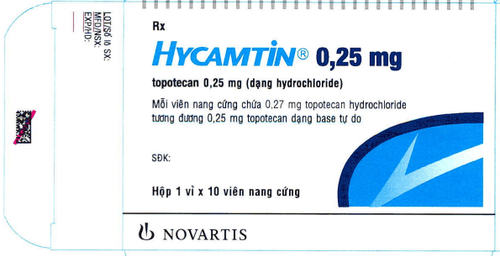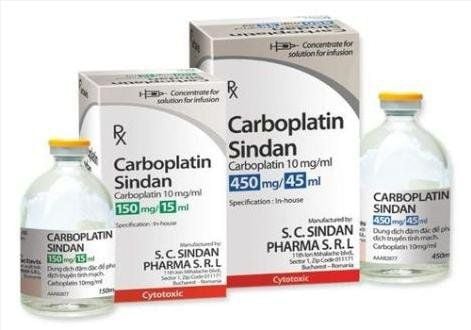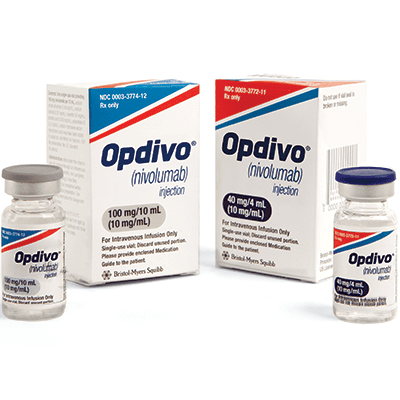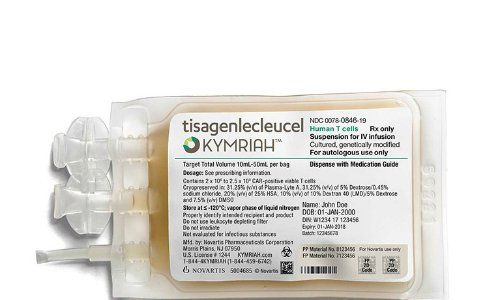This is an automatically translated article.
What is Gitrabin, is it a cancer treatment? In fact, Gitrabin 1g is an anti-cancer drug and acts on the immune system. Gitrabin medicine 1g is used in combination or alone in the treatment of some types of cancer such as bladder cancer, breast cancer, ovarian cancer, ...
1. What is Gitrabin?
Gitrabin 1g belongs to the group of anti-cancer drugs and affects the immune system, with the main ingredient being Gemcitabine (hydrochloride form) content of 1g. Gemcitabine is a pyrimidine antimetabolite, which exerts cytotoxic effects by inhibiting DNA synthesis.Gitrabin 1g drug is prepared in the form of lyophilized powder mixed with solution for intravenous infusion, packed in 1g vial and is indicated for use in the following cases:
In combination with cisplatin to treat bladder cancer metastatic or locally progressive. Treatment of locally advanced or metastatic pancreatic carcinoma. Combination of Gitrabin 1g with cisplatin in the treatment of locally advanced or metastatic non-small cell lung cancer (first-line therapy). In combination with carboplatin for the treatment of locally advanced or metastatic ovarian carcinoma (first-line therapy), or which has recurred after platinum-based therapy for at least 6 months. In combination with paclitaxel in the treatment of locally recurrent or metastatic breast cancer in which patients cannot undergo surgery.
2. Usage and dosage of Gitrabin 1g
Gitrabin 1g is given by infusion because it is well tolerated. If extravasation occurs, the patient should be discontinued immediately and the infusion should be administered at another intravenous site. After re-administration, the patient should be closely monitored.
Dosage of Gitrabin 1g depends on the specific type of cancer as follows:
Treatment of bladder cancer in combination with Cisplatin: Gitrabin intravenous infusion at a dose of 1,000mg/m2 body surface area for 30 minutes on days 1, 8 and 15 of a 4-week cycle (28 days respectively). After injecting Gitrabin 1g, administer Cisplatin at a dose of 70mg/m2 on day 1 or day 2 of cycle 4, repeating this 4-week cycle. Based on the toxicity of the drug on the patient to adjust the appropriate dose after each cycle. Treatment of pancreatic cancer: Gitrabin 1g intravenous infusion at a dose of 1,000mg/m2 body surface area for 30 minutes, repeated once a week for 7 weeks, then 1 week off. Next, give this dose intravenously once a week for 3 weeks and then rest for 1 week. Based on the toxicity of the drug on the patient to adjust the appropriate dose after each cycle. Treatment of non-small cell lung cancer: As monotherapy, Gitrabin 1g intravenous infusion at a dose of 1,000mg/m2 body surface area over 30 minutes, repeated once a week for 3 weeks. Then take a 1-week break, repeat the 4-week cycle. Based on the toxicity of the drug on the patient to adjust the appropriate dose after each cycle. For combination therapy, Gitrabin 1g intravenously at a dose of 1,250 mg/m2 body surface area was administered over 30 minutes on days 1 and 8 of a 21-day cycle (3 weeks, respectively). Based on the toxicity of the drug on the patient to adjust the appropriate dose after each cycle. Inject Cisplatin at a dose of 75-100mg/m2 at a frequency of 1 time/week and for 3 weeks. Treatment of breast cancer in combination with paclitaxel: Intravenous infusion of paclitaxel at a dose of 175 mg/m2 over 3 hours on day 1 of a 3-week cycle (corresponding to 21 days). Then, Gitrabin 1g intravenous infusion at a dose of 1,250mg/m2 on days 1 and 8 of a 3-week cycle. Based on the toxicity of the drug on the patient to adjust the appropriate dose after each cycle. Prior to combination therapy, the patient's total granulocytes should be counted. Treatment of ovarian cancer in combination with carboplatin: Gitrabin 1g intravenous infusion at a dose of 1,000mg/m2 on days 1 and 8 of a 21-day cycle. Then, use carboplatin at a dose of 4mg/ml/min on day 1. Based on the patient's toxicity to adjust the dose accordingly after each cycle. For the elderly (65 years of age and older), there is no need to adjust the dose of Gitrabin, as the drug is well tolerated.
So far there is no specific antidote for Gitrabin 1g overdose, if suspected, the patient should be monitored for blood cell counts and if necessary, appropriate supportive treatment will be taken. .
3. Side effects of Gitrabin 1g
Gitrabin 1g drug can cause some unwanted side effects with the frequency of occurrence as follows:
Very common: Anemia, leukopenia, thrombocytopenia, shortness of breath, nausea, vomiting, rash due to skin allergy, associated with hair loss, pruritus, elevated liver enzymes (AST and ALT) and alkaline phosphatase, hematuria, proteinuria (mild). Gitrabin 1g can very easily cause side effects that are flu-like symptoms such as fever, chills, headache, muscle aches, weakness, loss of appetite, fatigue, rhinitis, cough, sweating, trouble sleeping , peripheral edema, facial edema, discontinuation of treatment can restore the edema. Common: Gitrabin 1g can often cause side effects such as fever due to leukopenia, headache, loss of appetite, mouth ulcers, drowsiness, insomnia, rhinitis, cough, constipation, diarrhea, itching, sweating, muscle pain, backache, chills, weakness. Uncommon: Bronchospasm, interstitial pneumonia. Rarely: Gitrabin 1g rarely causes myocardial infarction, hypotension, increased GGT, ulceration and injection site reactions. If you see any strange symptoms after taking Gitrabin 1g, the patient should see a doctor immediately for a timely health check.
4. Some notes when using Gitrabin 1g
Do not use Gitrabin 1g in people with hypersensitivity to the ingredients of the drug, breastfeeding women, children under 18 years old (there is not enough information on safety and effectiveness in this group of subjects). People with liver failure, kidney failure need to be careful when using Gitrabin 1g, because the research data on this group of subjects is limited. Periodic clinical examination and examination of liver and kidney function to promptly detect the hematological toxicity of the drug and as a basis to adjust the dose reduction after each cycle. Gitrabin 1g can inhibit bone marrow and cause leukopenia, thrombocytopenia and anemia. Therefore, the patient should have a platelet, white blood cell, and granulocyte count before taking each dose of the drug. Consider dose adjustment or discontinuation if bone marrow suppression is observed. However, it is not usually necessary to reduce the dose or stop taking the drug because this does not last long. People with myelosuppression should be cautious when starting Gitrabin 1g. Consider combination therapy with Gitrabin with other chemotherapy because of the risk of cumulative myelosuppression. People with a history of hepatitis, cirrhosis, liver metastases, alcoholism should be careful when using Gitrabin 1g because the drug can make liver failure worse. Concomitant radiation therapy for less than 7 days during drug administration, as toxicity may be increased. It is not recommended that yellow fever vaccine or live vaccine be administered during Gitrabin 1g administration. People with cardiovascular disease need to be careful when taking Gitrabin because the drug increases the risk of cardiovascular disorders. Early supportive care should be taken and treatment discontinuation should be considered if the use of Gitrabin 1g causes serious lung damage such as interstitial pneumonia, pulmonary edema, adult respiratory distress syndrome. If microvascular hemolytic anemia is present, such as a rapid decrease in hemoglobin concentration, concomitant thrombocytopenia, and elevated serum bilirubin, creatinine, BUN, or LDH, Gitrabin 1g should be discontinued immediately. . Men being treated with Gitrabin should not have children because the drug affects fertility. Pre-treatment sperm preservation techniques can be actively sought. Consider Gitrabin 1g in patients on a salt-free diet. Pregnant women are only allowed to use the drug in case of absolute necessity, should not become pregnant while taking the drug. Breastfeeding women should stop breastfeeding while taking Gitrabin 1g. Do not drive or operate or operate machinery while taking Gitrabin as it can cause mild to moderate drowsiness. The use of Gitrabin 1g is to cause toxicity and destroy tumor cells in some metastatic or locally advanced cancer conditions such as bladder cancer, pancreatic carcinoma, ovarian cancer, breast cancer, and breast cancer. non-small cell lung cancer.
Please dial HOTLINE for more information or register for an appointment HERE. Download MyVinmec app to make appointments faster and to manage your bookings easily.













